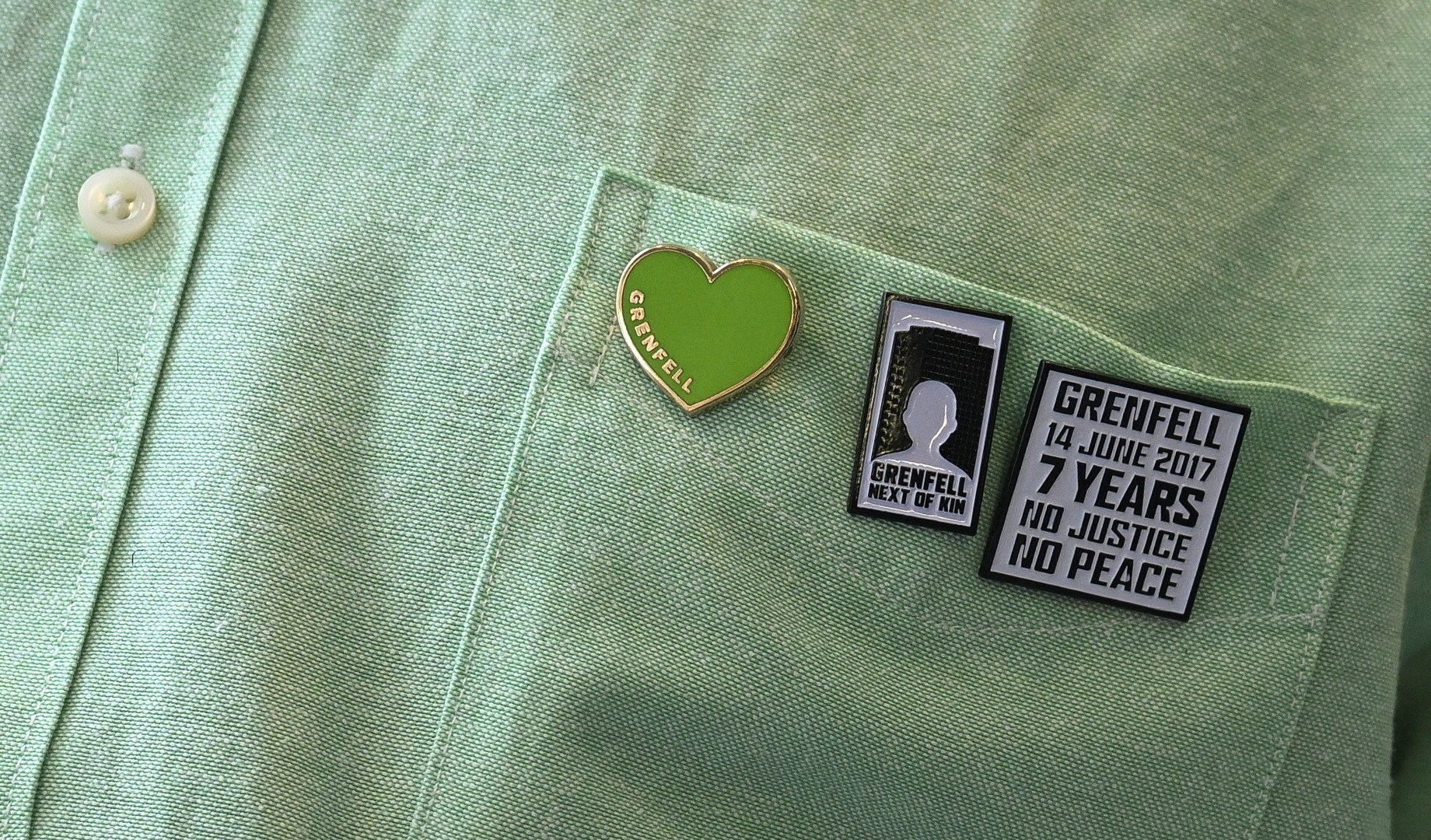Grenfell Tower survivors: ‘The system isn’t broken, it was built this way’ | Politics News
As a public inquiry released its report on the Grenfell Tower fire, survivors and relatives of those who died in the blaze said the findings had come too late.
Seventy-two people – 54 adults and 18 children – died in the fire that ripped through the high-rise tower block in the North Kensington area of London on the night of June 14, 2017. The blaze started in a fourth-floor kitchen just before midnight and, within three-and-a-half hours, had engulfed the entire 24-storey building.
Following a six-year inquiry, the final 1,700-page report concluded that the disaster resulted from “decades of failure” that put profit ahead of safety.
The report highlighted failures by successive United Kingdom governments, local council leaders, the fire service and the companies involved in the production and installation of the flammable cladding and insulation that allowed the fire to spread so rapidly.
Karim Mussilhy, 38, whose uncle died on the top floor of Grenfell Tower, told Al Jazeera that the community has been “failed in every single aspect … before, during and after the fire, by [the] government, by corporations, by local authorities, by police, everybody failed us”.
“Everyone had their own agenda, and it all was sort of led by money and profits, or it was to cover up deliberate and systematic dishonesty, manipulation, fraudulent activity [and] corruption,” said Mussilhy, who is also the vice chairman of Grenfell United, a group of survivors and family members of those who died in the fire.
For Mussilhy, it is important people understand that “the system isn’t broken”.
“It was built specifically this way,” he explained, adding that when things go wrong and people “ultimately lose their lives, the system enables them to get away with it and continue to prosper”.
Following the report’s release, Prime Minister Keir Starmer apologised to those affected by the fire on behalf of the state.
“It should never have happened. The country failed to discharge its most fundamental duty, to protect you and your loved ones,” he said in Parliament on Wednesday.
“Today is a long-awaited day of truth, but it must now lead to a day of justice.”

‘I simply wouldn’t be here today’
Emma O’Connor, 35, lived on the 20th floor of Grenfell Tower with her partner. The sound of fire engines prompted them to leave their flat that night – more out of curiosity than fear. That is when they saw the thick black smoke coming from the tower’s rubbish chute.
They made it out unharmed but lost three friends in the fire.
As they sat outside, they watched the flames engulf the tower. “Once [the fire] got to our floor, I sort of went into shock,” Emma recalled.
Reflecting on the report, she added: “[The survivors] didn’t need to wait seven years to be told the truth because everyone already knew [who and what was responsible for the fire].”
While she acknowledged that justice for the tragedy looks different to everyone, for her, it can only mean increased funding for the fire brigade, especially for the North Kensington fire station. Without them, “I simply wouldn’t be here today”, she said.
O’Connor called on Starmer to implement the report’s findings, which include 58 recommendations to overhaul regulation of the construction industry’s refurbishment of high-rise buildings.
Aluminium composite material (ACM) panels were added to Grenfell Tower during its refurbishment, which concluded in 2016. ACM panels have three layers – a polyethylene (PE) core between two aluminium sheets. But PE is highly flammable.
“They also need to speed up this removal of the cladding, because it’s not just the residential blocks, it’s [in] hospitals and schools,” Emma said.
According to government figures, as of July 2024, there are 4,630 residential buildings in the UK, which are 11 metres (36 feet) or higher, with unsafe cladding.
Accountability
Nineteen companies and 58 individuals are currently under investigation over their roles in the disaster, with possible charges including corporate manslaughter and fraud.
However, the police have said that, because of the “scale and complexity” of the inquiry, any prosecutions will not take place until late 2026.
For Mussilhy, this delay – on top of the seven years that families and survivors have already waited – is unacceptable.
“We don’t believe that the police need to wait until 2026, 2027 or 2028, whatever it is that they’ve said … to move forward with criminal prosecutions,” he said.
“Everyone’s really frustrated, angry. This has been a really long process for all of us. Nothing that’s come out in the report has surprised us, or isn’t anything that we didn’t know already … [But] we’re very resilient, we’re very stubborn, we will see this through to the end. We knew that this was going to be a long journey, but we’re not going to let it get kicked into the grass.”
grenfell-tower-survivors-the-system-isnt-broken-it-was-built-this-way-politics-news
#Grenfell #Tower #survivors #system #isnt #broken #built #Politics #News

